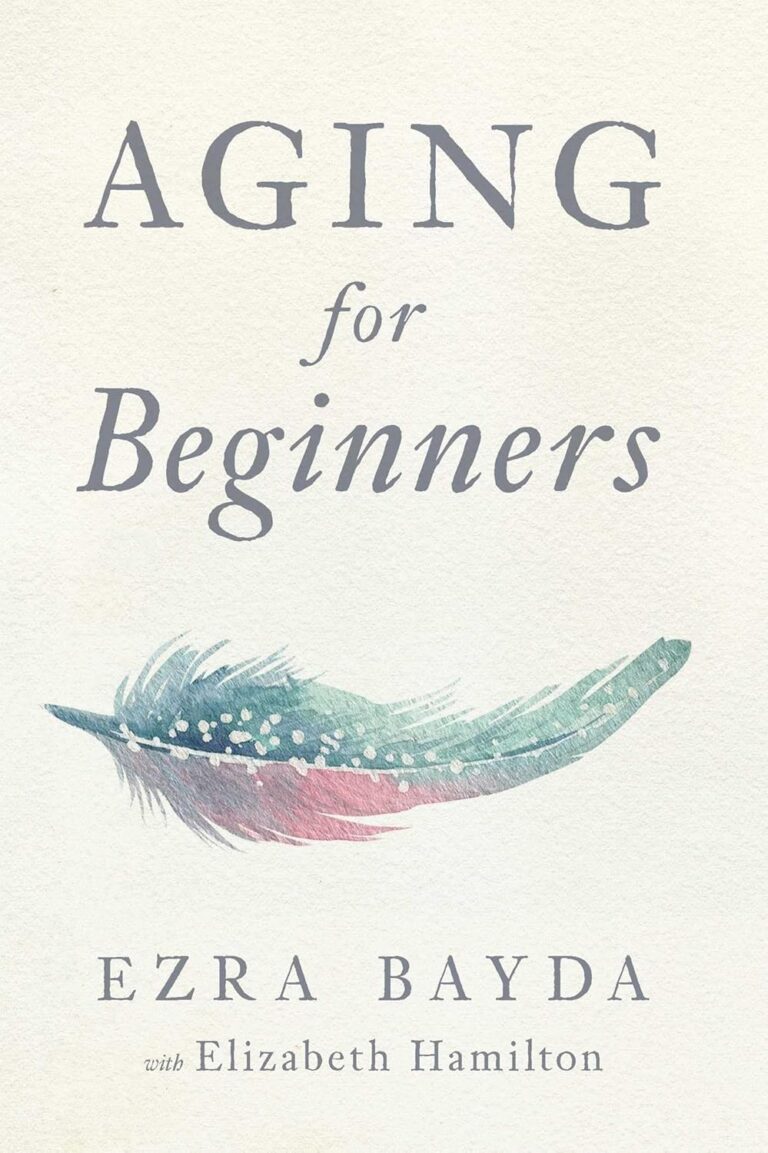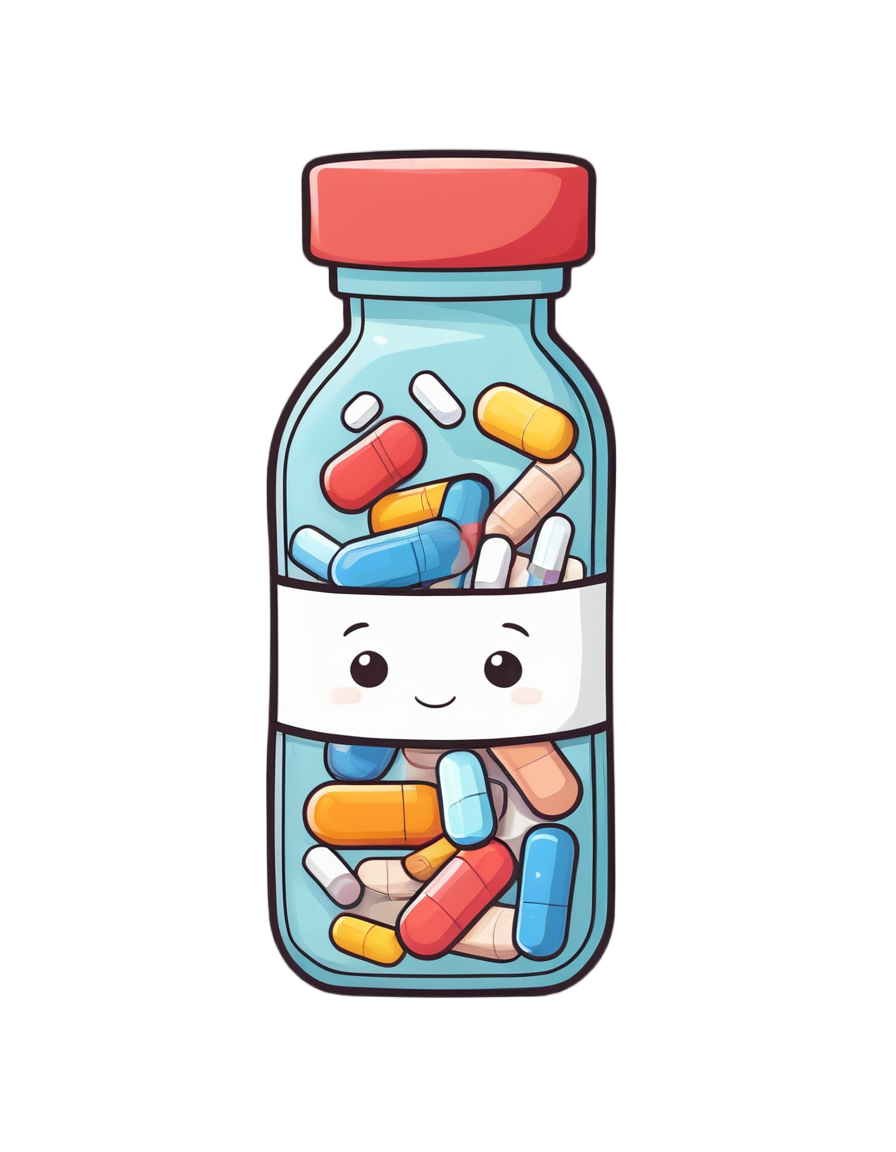
Loss, Trauma, and Resilience – by Dr. Pauline Boss
10almonds is reader-supported. We may, at no cost to you, receive a portion of sales if you purchase a product through a link in this article.
Most books about bereavement are focused on grieving healthily and then moving on healthily. And, while it may be said “everyone’s grief is on their own timescale”… society’s expectation is often quite fixed:
“Time will heal”, they say.
But what if it doesn’t? What happens when that’s not possible?
Ambiguous loss occurs when someone is on the one hand “gone”, but on the other hand, not necessarily.
This can be:
- Someone was lost in a way that didn’t leave a body to 100% confirm it
- (e.g. disaster, terrorism, war, murder, missing persons)
- Someone remains physically present but in some ways already “gone”
- (e.g. Alzheimer’s disease or other dementia, brain injury, coma)
These things stop us continuing as normal, and/but also stop us from moving on as normal.
When either kind of moving forward is made impossible, everything gets frozen in place. How does one deal with that?
Dr. Boss wrote this book for therapists, but its content is equally useful for anyone struggling with ambiguous loss—or who has a loved one who is, in turn, struggling with that.
The book looks at the impact of ambiguous loss on continuing life, and how to navigate that:
- How to be resilient, in the sense of when life tries to break you, to have ways to bend instead.
- How to live with the cognitive dissonance of a loved one who is a sort of “Schrödinger’s person”.
- How, and this is sometimes the biggest one, to manage ambiguous loss in a society that often pushes toward: “it’s been x period of time, come on, get over it now, back to normal”
Will this book heal your heart and resolve your grief? No, it won’t. But what it can do is give a roadmap for nonetheless thriving in life, while gently holding onto whatever we need to along the way.
Click here to check out “Ambiguous loss, Trauma, and Resilience” on Amazon—it can really help
Don’t Forget…
Did you arrive here from our newsletter? Don’t forget to return to the email to continue learning!
Recommended
Learn to Age Gracefully
Join the 98k+ American women taking control of their health & aging with our 100% free (and fun!) daily emails:
-
Beating Sleep Apnea
10almonds is reader-supported. We may, at no cost to you, receive a portion of sales if you purchase a product through a link in this article.
Healthier, Natural Sleep Without Obstruction!
Obstructive Sleep Apnea, the sleep disorder in which one periodically stops breathing (and thus wakes up) repeatedly through the night, affects about 25% of men and 10% of women:
Prevalence of Obstructive Sleep Apnea Syndrome: A Single-Center Retrospective Study
Why the gender split?
There are clues that suggest it is at least partially hormonal: once women have passed menopause, the gender split becomes equal.
Are there other risk factors?
There are few risk other factors; some we can’t control, and some we can:
- Being older is riskier than being younger
- Being overweight is riskier than not being overweight
- Smoking is (what a shock) riskier than not smoking
- Chronic respiratory diseases increase risk, for example:
- Asthma
- COPD
- Long COVID*—probably. The science is young for this one so far, so we can’t say for sure until more research has been done.
- Some hormonal conditions increase risk, for example:
- Hypothyroidism
- PCOS
*However, patients already undergoing Continuous Positive Airway Pressure (CPAP) treatment for obstructive sleep apnea may have an advantage when fighting a COVID infection:
What can we do about it?
Avoiding the above risk factors, where possible, is great!
If you are already suffering from obstructive sleep apnea, then you probably already know about the possibility of a CPAP device; it’s a mask that one wears to sleep, and it does what its name says (i.e. it applies continuous positive airway pressure), which keeps the airway open.
We haven’t tested these, but other people have, so here are some that the Sleep Foundation found to be worthy of note:
Sleep Foundation | Best CPAP Machines of 2024
What can we do about it that’s not CPAP?
Wearing a mask to sleep is not everyone’s preferred way to do things. There are also a plethora of surgeries available, but we’ll not review those, as those are best discussed with your doctor if necessary.
However, some lifestyle changes can help, including:
- Lose weight, if overweight. In particular, having a collar size under 16” for women or under 17” for men, is sufficient to significantly reduce the risk of obstructive sleep apnea.
- Stop smoking, if you smoke. This one, we hope, is self-explanatory.
- Stop drinking alcohol, or at least reduce intake, if you drink. People who consume alcohol tend to have more frequent, and longer, incidents of obstructive sleep apnea. See also: How To Reduce Or Quit Drinking
- Avoid sedatives and muscle relaxants, if it is safe for you to do so. Obviously, if you need them to treat some other condition you have, talk this through with your doctor. But basically, they can contribute to the “airway collapses on itself” by reducing the muscular tension that keeps your airway the shape it’s supposed to be.
- Sleep on your side, not your back. This is just plain physics, and a matter of wear the obstruction falls.
- Breathe through your nose, not through your mouth. Initially tricky to do while sleeping, but the more you practice it while awake, the more it becomes possible while asleep.
- Consider a nasal decongestant before sleep, if congestion is a problem for you, as that can help too.
For more of the science of these, see:
Cultivating Lifestyle Transformations in Obstructive Sleep Apnea
There are more medical options available not discussed here, too:
American Sleep Apnea Association | Sleep Apnea Treatment Options
Take care!
Share This Post
-
In Plain English…
10almonds is reader-supported. We may, at no cost to you, receive a portion of sales if you purchase a product through a link in this article.
It’s Q&A Time!
This is the bit whereby each week, we respond to subscriber questions/requests/etc
Have something you’d like to ask us, or ask us to look into? Hit reply to any of our emails, or use the feedback widget at the bottom, and a Real Human™ will be glad to read it!
Q: Love to have someone research all the additives in our medicines, (risk of birth control and breast cancer) and what goes in all of our food and beverages. So much info out there, but there are so many variations, you never know who to believe.
That’s a great idea! There are a lot of medicines and food and beverages out there, so that’s quite a broad brief, but! We could well do a breakdown of very common additives, and demystify them, sorting them into good/bad/neutral, e.g:
- Ascorbic acid—Good! This is Vitamin C
- Acetic acid—Neutral! This is vinegar
- Acetylsalicylic acid—Good or Bad! This is aspirin (a painkiller and blood-thinning agent, can be good for you or can cause more problems than it solves, depending on your personal medical situation. If in doubt, check with your doctor)
- Acesulfame K—Generally Neutral! This is a sweetener that the body can’t metabolize, so it’s also not a source of potassium (despite containing potassium) and will generally do nothing. Unless you have an allergy to it, which is rare but is a thing.
- Sucralose—Neutral! This is technically a sugar (as is anything ending in -ose), but the body can’t metabolize it and processes it as a dietary fiber instead. We’d list it as good for that reason, but honestly, we doubt you’re eating enough sucralose to make a noticeable difference to your daily fiber intake.
- Sucrose—Bad! This is just plain sugar
Sometimes words that sound the same can ring alarm bells when they need not, for example there’s a big difference between:
- Potassium iodide (a good source of potassium and iodine)
- Potassium cyanide (the famous poison; 300mg will kill you; half that dose will probably kill you)
- Cyanocobalamine (Vitamin B12)
Let us know if there are particular additives (or particular medications) you’d like us to look at!
While for legal reasons we cannot give medical advice, talking about common contraindications (e.g., it’s generally advised to not take this with that, as one will stop the other from working, etc) is definitely something we could do.
For example! St. John’s Wort, very popular as a herbal mood-brightener, is on the list of contraindications for so many medications, including:
- Antidepressants
- Birth control pills
- Cyclosporine, which prevents the body from rejecting transplanted organs
- Some heart medications, including digoxin and ivabradine
- Some HIV drugs, including indinavir and nevirapine
- Some cancer medications, including irinotecan and imatinib
- Warfarin, an anticoagulant (blood thinner)
- Certain statins, including simvastatin
Q: As I am a retired nurse, I am always interested in new medical technology and new ways of diagnosing. I have recently heard of using the eyes to diagnose Alzheimer’s. When I did some research I didn’t find too much. I am thinking the information may be too new or I wasn’t on the right sites.
(this is in response to last week’s piece on lutein, eyes, and brain health)
We’d readily bet that the diagnostic criteria has to do with recording low levels of lutein in the eye (discernible by a visual examination of macular pigment optical density), and relying on the correlation between this and incidence of Alzheimer’s, but we’ve not seen it as a hard diagnostic tool as yet either—we’ll do some digging and let you know what we find! In the meantime, we note that the Journal of Alzheimer’s Disease (which may be of interest to you, if you’re not already subscribed) is onto this:
See also:
- Journal of Alzheimer’s Disease (mixture of free and paid content)
- Journal of Alzheimer’s Disease Reports (open access—all content is free)
Q: As to specific health topics, I would love to see someone address all these Instagram ads targeted to women that claim “You only need to ‘balance your hormones’ to lose weight, get ripped, etc.” What does this mean? Which hormones are they all talking about? They all seem to be selling a workout program and/or supplements or something similar, as they are ads, after all. Is there any science behind this stuff or is it mostly hot air, as I suspect?
Thank you for asking this, as your question prompted yesterday’s main feature, What Does “Balancing Your Hormones” Even Mean?
That’s a great suggestion also about addressing ads (and goes for health-related things in general, not just hormonal stuff) and examining their claims, what they mean, how they work (if they work!), and what’s “technically true but may
be misleading* cause confusion”*We don’t want companies to sue us, of course.
Only, we’re going to need your help for this one, subscribers!
See, here at 10almonds we practice what we preach. We limit screen time, we focus on our work when working, and simply put, we don’t see as many ads as our thousands of subscribers do. Also, ads tend to be targeted to the individual, and often vary from country to country, so chances are good that we’re not seeing the same ads that you’re seeing.
So, how about we pull together as a bit of a 10almonds community project?
- Step 1: add our email address to your contacts list, if you haven’t already
- Step 2: When you see an ad you’re curious about, select “share” (there is usually an option to share ads, but if not, feel free to screenshot or such)
- Step 3: Send the ad to us by email
We’ll do the rest! Whenever we have enough ads to review, we’ll do a special on the topic.
We will categorically not be able to do this without you, so please do join in—Many thanks in advance!
Share This Post
-
Hazelnuts vs Cashews – Which is Healthier?
10almonds is reader-supported. We may, at no cost to you, receive a portion of sales if you purchase a product through a link in this article.
Our Verdict
When comparing hazelnuts to cashews, we picked the hazelnuts.
Why?
It’s close! This one’s interesting…
In terms of macros, hazelnuts have more fiber and fats, while cashews have more protein and carbs. All in all, all good stuff all around; maybe a win for one or the other depending on your priorities. We’d pick hazelnuts here, but your preference may vary.
When it comes to vitamins, hazelnuts have more of vitamins A, B1, B2, B3, B5, B6, B9, C, and E, while cashews have more vitamin K. An easy win for hazelnuts here, and the margins weren’t close.
In the category of minerals, hazelnuts have more calcium, manganese, and potassium, while cashews have more copper, iron, magnesium, phosphorus, selenium, and zinc. This is a win for cashews, but it’s worth noting that cup for cup, both of these nuts provide more than the daily requirement of most of those minerals. This means that in practical terms, it doesn’t matter too much that (for example), while cashews provide 732% of the daily requirement for copper, hazelnuts “only” provide 575%. So while this category remains a victory for cashews, it’s something of a “on paper” thing for the most part.
Adding up the sections (ambivalent + clear win for hazelnuts + nominal win for cashews) means that in total today we’re calling it in favour of hazelnuts… But as ever, enjoy both, because both are good and so is diversity!
Want to learn more?
You might like to read:
Why You Should Diversify Your Nuts
Take care!
Share This Post
Related Posts
-
Behaving During the Holidays
10almonds is reader-supported. We may, at no cost to you, receive a portion of sales if you purchase a product through a link in this article.
It’s Q&A Day at 10almonds!
Have a question or a request? You can always hit “reply” to any of our emails, or use the feedback widget at the bottom!
In cases where we’ve already covered something, we might link to what we wrote before, but will always be happy to revisit any of our topics again in the future too—there’s always more to say!
As ever: if the question/request can be answered briefly, we’ll do it here in our Q&A Thursday edition. If not, we’ll make a main feature of it shortly afterwards!
So, no question/request too big or small
❝It’s hard to “behave” when it comes to holiday indulging…I’m on a low sodium, sugar restricted regimen from my doctor. Trying to get interested in bell peppers as a snack…wish me luck!❞
Good luck! Other low sodium, low sugar snacks include:
- Nuts! Unsalted, of course. We’re biased towards almonds 😉
- Mixed nuts are an especially healthy way to snack, though (assuming you don’t have an allergy, obviously)
- Air-popped popcorn (you can season it, just not with salt/sugar!)
- Fruit (but not fruit juice; it has to be in solid form)
- Peas (not a classic snack food, we know, but they can be enjoyed many ways)
- Seriously, try them frozen or raw! Frozen/raw peas are a great sweet snack.
- Chickpeas are great dried/roasted, by the way, and give much of the same pleasure as a salty snack without being salty! Obviously, this means cooking them without salt, but that’s fine, or if using tinned, choose “in water” rather than “in brine”
- Hummus is also a great healthy snack (check the ingredients for salt if not making it yourself, though) and can be enjoyed as a dip using raw vegetables (celery, carrot sticks, cruciferous vegetables, whatever you prefer)
Enjoy!
Don’t Forget…
Did you arrive here from our newsletter? Don’t forget to return to the email to continue learning!
Learn to Age Gracefully
Join the 98k+ American women taking control of their health & aging with our 100% free (and fun!) daily emails:
- Nuts! Unsalted, of course. We’re biased towards almonds 😉
-
Thinner Leaner Stronger – by Michael Matthews
10almonds is reader-supported. We may, at no cost to you, receive a portion of sales if you purchase a product through a link in this article.
First, the elephant in the training room: this book does assume that you want to be thinner, leaner, and stronger. This is the companion book, written for women, to “Bigger, Stronger, Leaner”, which was written for men. Statistically, these assumptions are reasonable, even if the generalizations are imperfect. Also, this reviewer has a gripe with anything selling “thinner”. Leaner was already sufficient, and “stronger” is the key element here, so “thinner” is just marketing, and marketing something that’s often not unhealthy, to sell a book that’s actually full of good advice for building a healthy body.
In other words: don’t judge a book by the cover, however eyeroll-worthy it may be.
The book is broadly aimed at middle-aged readers, but boasts equal worth for young and old alike. If there’s something Matthews knows how to do well in his writing, it’s hedging his bets.
As for what’s in the book: it’s diet and exercise advice, aimed at long-term implementation (i.e. not a crash course, but a lifestyle change), for maximum body composition change results while not doing anything silly (like many extreme short-term courses do) and not compromising other aspects of one’s health, while also not taking up an inordinate amount of time.
The dietary advice is sensible, broadly consistent with what we’d advise here, and/but if you want to maximise your body composition change results, you’re going to need a pocket calculator (or be better than this writer is at mental arithmetic).
The exercise advice is detailed, and a lot more specific than “lift things”; there are programs of specifically how many sets and reps and so forth, and when to increase the weights and when not to.
A strength of this book is that it explains why all those numbers are what they are, instead of just expecting the reader to take on faith that the best for a given exercise is (for example) 3 sets of 8–10 reps of 70–75% of one’s single-rep max for that exercise. Because without the explanation, those numbers would seem very arbitrary indeed, and that wouldn’t help anyone stick with the program. And so on, for any advice he gives.
The style is… A little flashy for this reader’s taste, a little salesy (and yes he does try to upsell to his personal coaching, but really, anything you need is in the book already), but when it comes down to it, all that gym-boy bravado doesn’t take away from the fact his advice is sound and helpful.
Bottom line: if you would like your body to be the three things mentioned in the title, this book can certainly help you get there.
Click here to check out Thinner Leaner Stronger, and become thinner, leaner, stronger!
Don’t Forget…
Did you arrive here from our newsletter? Don’t forget to return to the email to continue learning!
Learn to Age Gracefully
Join the 98k+ American women taking control of their health & aging with our 100% free (and fun!) daily emails:
-
Mimosa For Healing Your Body & Mind
10almonds is reader-supported. We may, at no cost to you, receive a portion of sales if you purchase a product through a link in this article.
Today we’re looking at mimosa (no relation to the cocktail!), which is a name given to several related plant species that belong to the same genus or general clade, look similar, and have similar properties and behavior.
As a point of interest that’s not useful: mimosa is one of those plants whereby if you touch it, it’ll retract its leaves and shrink away from you. The leaves also droop at nighttime (perfectly healthily; they’re not wilting or anything; this too is just plant movement), and spring back up in the daytime.
So that’s what we mean when we say “and behavior” 😉
Antidepressant & anxiolytic
Mimosa bark and leaves have long been used in Traditional Chinese Medicine, as well as (albeit different species) in the North-East of Brazil, and (again, sometimes different species) in Mexico.
Animal studies, in vivo studies, and clinical practice in humans, have found this to be effective, for example:
❝[Mimosa pudica extract] has anti-anxiety, anti-depressant and memory enhancing activities that are mediated through multiple mechanisms❞
Source: Effects of Mimosa pudica L. leaves extract on anxiety, depression and memory
Research is ongoing with regard to how, exactly, mimosa does what it does. Here’s a paper about another species mimosa:
(notwithstanding the genus name, it’s still part of the mimosa clade)
Anti-inflammatory & analgesic
In this case, mimosa has traditionally been used as a topical tincture (for skin damage of many kinds, ranging from cuts and abrasions to burns to autoimmune conditions and more), so what does the science say about that?
❝In summary, the present study provided evidence that the [mimosa extract], its fractions and the isolated compound sakuranetin showed significant anti-inflammatory and antinociceptive activities❞
Wound healing
About those various skin damages, here’s another application, and a study showing that it doesn’t just make it feel better, it actually helps it to heal, too:
❝Therapeutic effectiveness occurred in all patients of the extract group; after the 8th treatment week, ulcer size was reduced by 92% as mean value in this group, whereas therapeutic effectiveness was observed only in one patient of the control group (chi(2), p=0.0001). No side effects were observed in any patient in either group.❞
Very compelling stats!
Read more: Therapeutic effectiveness of a Mimosa tenuiflora cortex extract in venous leg ulceration treatment
Is it safe?
Yes, for most people, with some caveats:
- this one comes with a clear “don’t take if pregnant or breastfeeding” warning, as for unknown reasons it has caused a high incidence of fetal abnormalities or fetal death in animal studies.
- while the stem bark (the kind used in most mimosa supplements and most readily found online) has negligible psychoactivity, as do many species of mimosa in general, the root of M. tenuiflora has psychedelic effects similar to ayahuasca if taken orally, for example as a decoction, if in the presence of a monoamine oxidase inhibitor (MAOI), as otherwise MAO would metabolize the psychoactive component in the gut before it can enter the bloodstream.
That’s several “ifs”, meaning that the chances of unwanted psychedelic effects are slim if you’re paying attention, but as ever, do check with your doctor/pharmacist to be sure.
Want to try some?
We don’t sell it, but here for your convenience is an example product on Amazon 😎
Enjoy!
Don’t Forget…
Did you arrive here from our newsletter? Don’t forget to return to the email to continue learning!
Learn to Age Gracefully
Join the 98k+ American women taking control of their health & aging with our 100% free (and fun!) daily emails:







